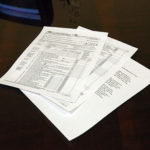 If Jews, Muslims, and Christians are People of the Book, we, as bankruptcy lawyers, are, or ought to be, People of the Code, the Bankruptcy Code.
If Jews, Muslims, and Christians are People of the Book, we, as bankruptcy lawyers, are, or ought to be, People of the Code, the Bankruptcy Code.
Virtually every question that a new bankruptcy lawyer asks ought to send her first to the code for a start.
The Bankruptcy Code adopted in 1978, was well thought out in terms of structure, word usage, and organization. The “reforms” of 2005 were a step back in terms of clarity.
But even if the statute is difficult, my firm advice is to read the relevant code sections, before you look for cases on your question or call for help from others.
Take a look at the organization of the code. Chapters 1, 3, and 5 apply in every bankruptcy case. Chapters 7, 9, 11, 12, 13 apply only to cases filed under those chapters.
Then, find a summary of the 2005 changes, and be mindful of new concepts or alterations that BAPCPA brought with it. Yesterday, a new bankruptcy lawyer cited a 1995 case on disposable income, having missed, apparently, that the term was redefined in 2005.
Hit the book, or the Code, and this will all fall together sooner.
Image courtesy bookfind.jp








so many of today’s confusions on income and means test are from bapcpa, in my opinion.
Cathy,
What printed copy of the bankruptcy code do you carry with you? Can you suggest a list of essentials for the Bankruptcy Attorney’s “Library”.
Thanks,
John
When I carry a code, it’s the Colliers pamphlet edition, given out at every NACBA annual meeting. I had an electronic version of the code for my Palm and now need to find one for my Droid.
My bankruptcy library is dated: I very much liked Judge Cowan’s Bankruptcy Law and Practice and the Collier’s Guide to Practice and Procedure, purchased when I started bankruptcy in 1980 for trustees. Morgan King’s Discharging Taxes in Bankruptcy is essential and access to Keith Lundon’s Chapter 13 treatise is tremendous. I have many of the NCLC’s books on consumer law issues, except the bankruptcy one. Go figure….